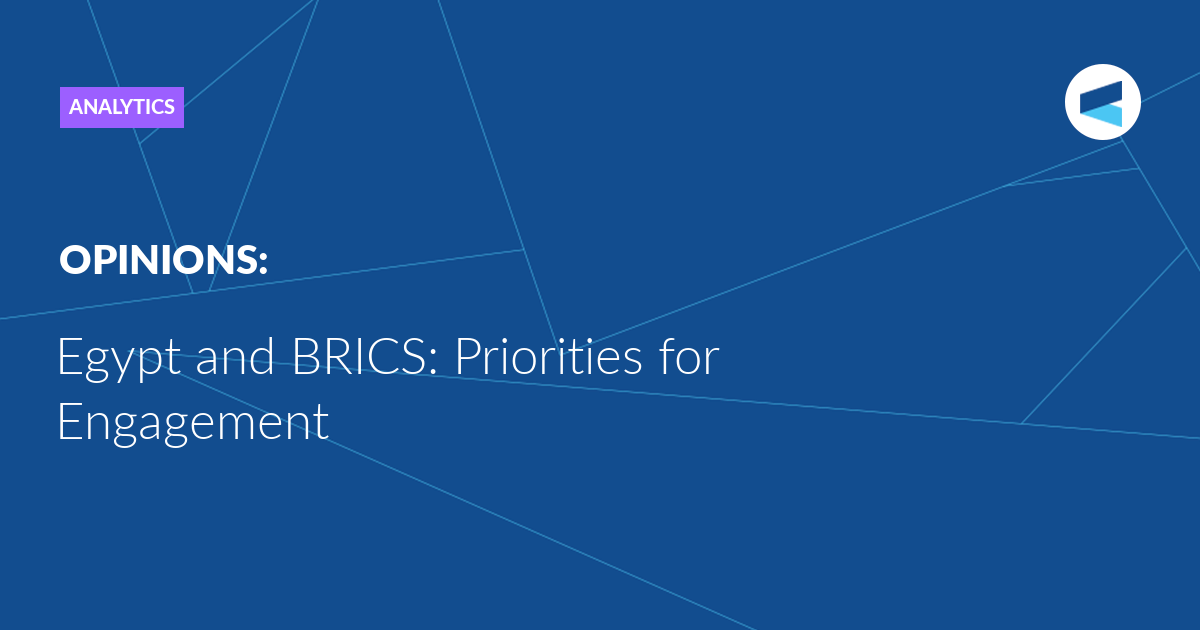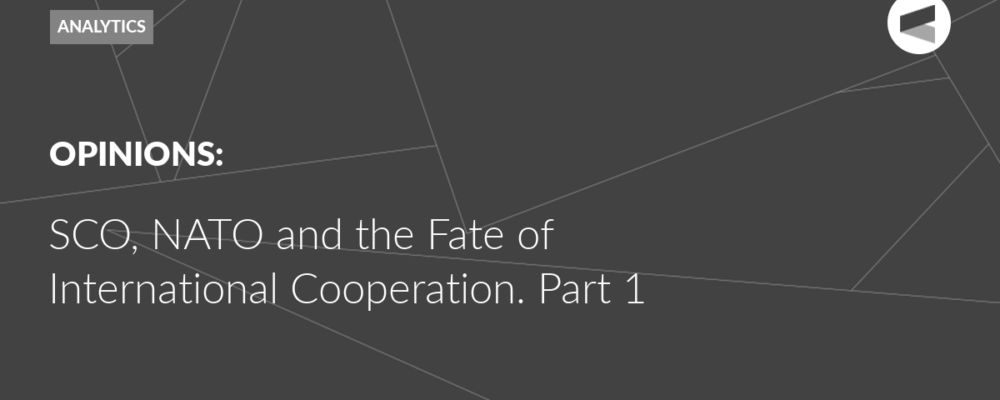On January 1, 2024, Egypt and four other countries from the Global South became members of BRICS. Egypt had previously joined the BRICS New Development Bank (NDB) in December 2021 with a contribution of $1.2 billion. This represents an important turning point in Egyptian policy. Since the 1970s, Egypt has submitted to the Western economy, which is dominated by the United States. Egypt’s membership in BRICS confirms the popularity and support for BRICS among the Global South, which groans from the greed and exploitation of the West. The developing countries seek balanced, win-win partnerships and true opportunities for development. The Egyptian step indicates its desire to pursue an alternative path. I is poised to enhance African and Arab support for BRICS measures to achieve a new multipolar economic order.
Egypt’s geopolitical position represents an important addition to BRICS. It is one of the most influential players in the security of two very important bodies of water, the Mediterranean Sea and the Red Sea. It also controls the Suez Canal, which represents a major artery for global trade and logistics. It provides a key hub for many industries and grain, as well as an important link in global supply chains. Egypt is a gateway to the Middle East, Africa and the Mediterranean countries, by virtue of its geographical location and the economic blocks to which it belongs. It is also a large market, with 106 million people, for a wide range of goods and products. It is also an important market for technology in various fields, including nuclear energy. Egypt has unlimited potential and development opportunities in various fields.
On the other hand, Egypt’s acceptance of BRICS membership represents an international testimony to the strength of the Egyptian economy and the important potentials it possesses. It gives Egypt the opportunity to be an active participate in establishing a more just and independent global economic system. It enhances Egypt’s position, given the importance of BRICS, and reflects its expanding global economic influence. BRICS represents 36% of global GDP, surpassing the G7’s 30%.
Egypt’s accession to BRICS guarantees its financial security by trading in national currencies. One of the main goals of BRICS is de-dollarisation: ending the dominance of the US dollar and its weaponisation through the use of local currencies in commercial transactions. The plans of BRICS include creating an international payment system, “BRICS Pay”, which would use blockchain technology to create digital assets for use in financial settlements. This will break the monopoly of the Western SWIFT system on financial operations around the world. It enhances the ability to repay and strengthens economic stability against uncertainty and external shocks. It will release the pressure on foreign exchange in Egypt at a time when it is experiencing difficulties providing US dollars.
Egyptian membership in BRICS is poised to help increase Egypt’s exports by integrating it more into the Belt and Road project and economic blocs led by BRICS countries, i.e. the Eurasian Economic Union and Mercosur. Egypt’s exports to the BRICS countries increased 5.3% in 2022, reaching $4.9 billion. This figure is expected to double. That would also ensure Egypt’s access to strategic commodities, such as grain, as the BRICS countries produce a third of the world’s grain. Russia is the largest exporter of grain, while Egypt is the largest importer, globally.
Egypt stands to gain from better opportunities to attract foreign direct investment from BRICS countries. The investments of the BRICS countries in Egypt amounted to $891.2 million in 2021/2022. This figure is very limited, given the capabilities of the BRICS and the opportunities available in Egypt. Moreover, Egypt’s membership in the BRICS NDB allows it to obtain concessional financing for development projects without the kind of unfair political and economic conditions that are imposed by the World Bank and IMF.
Egypt, which is considered a favourite tourist destination among Russians and other BRICS citizens, also expects an increase in tourism. Activating acceptance of national payment cards such as Russia’s “Mir” will greatly encourage tourists to choose Egypt. Tourism is a major pillar of the Egyptian economy and a primary source of foreign currency. It supports many other economic sectors and provides millions of job opportunities for Egyptians.
There is a solid base of mutual interest between Egypt and BRICS countries that ensures the launch of a sustainable and growing partnership between them, as well as effective progress towards a new multipolar, more just, equitable and stable world economic order.
The Valdai Discussion Club was established in 2004. It is named after Lake Valdai, which is located close to Veliky Novgorod, where the Club’s first meeting took place.
Please visit the firm link to site






